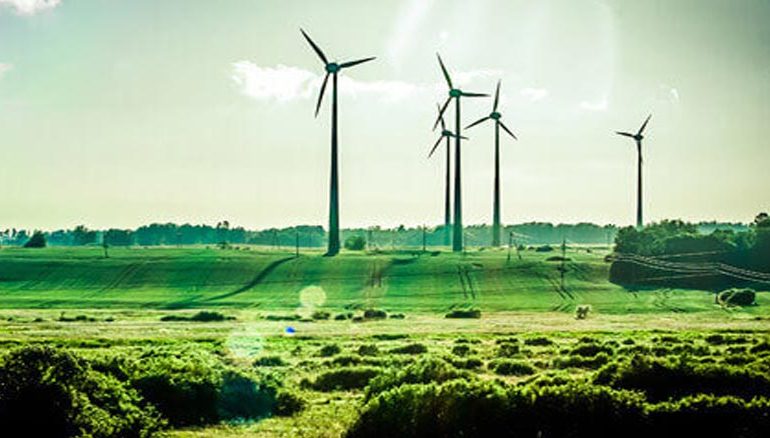Plastic is one of the most popular materials used all around the world. You name a thing and it’s made up of plastic! From shampoo bottles and carry bags to computers and batteries, all have some element of plastic present in them. Being used so commonly all over the world, the waste generated from the use of the element is enormous. This waste, if not managed properly, has numerous ill-effects on the environment and living beings. Hence, plastic waste management is very important.
Plastic: a threat
Despite having a lot of advantageous properties, the ways plastic impacts the environment can’t be neglected. Plastic confers countless ill-effects, which are as follows:-
- Non-Biodegradable: Plastic stays in the environment forever. Plastic can’t be decomposed. Recycling plastic is the only way to stop plastic waste that degrades the environment.
- Health ailments: Burning plastic leads to the emission of numerous harmful gases and toxic chemicals which leads to respiratory problems, cancer, birth defects, and many other health problems.
- Water contamination and accumulation: Plastic, on entering water sources, contaminates the source, making it unfit for drinking. Also plastic leads to the accumulation of rainwater as it hinders seepage of water and hence, the place becomes a breeding place for mosquitoes and other insects.
- Threats to wildlife: Plastic affects wildlife drastically. Animals and birds swallow plastic which chokes their wind and food pipes leading to their death. Hence, plastic destroys food chains.
Types of plastics
Plastics, depending on their properties, can be classified as follows:
- Thermoplastics: Only a few molecules of thermoplastics are linked cross-wise. It can be bent into various shapes many times. Thermoplastics can be heated and their shape can be changed.
- Thermosetting Plasticsh: These plastics have all the molecules linked cross-wise. Hence, they have a rigid molecular structure. Unlike Thermoplastics, they can’t be heated and reshaped again.
“Keep your plastic to yourself” – says a fish
It has been estimated that there are approximately 5.25 million pieces of plastic debris in oceans, with almost 2,69,000 tons floating on the surface. According to the statistics, 1,00,000 marine creatures die from getting entangled in plastic. Approximately, 1 million sea birds die every year by swallowing plastics. The most died creatures include Sea Turtles, who mistake plastic as a food source and hence, blocking their food pipes. Other species include seals, sea lions, Albatrosses, and many others.
Plastic Waste Management: A solution
Plastic waste management refers to managing the plastic waste generated and processing it to make it reusable. Millions of tons of plastic waste generated every year because of plastic bottles, polythene bags, and other plastic items. Since, plastic non-biodegradable, reusing it again is the only alternative. In the case of thermoplastics, the product can be reshaped into desirable products, but thermosetting plastics pose a challenge. Most of the plastic waste generated is made up of thermosetting plastic. These plastics can’t be reshaped. Managing plastic waste is a challenging task. It involves the conversion of thermoplastics into desired products and recycling or reusing the thermosetting plastic.
The 3 R’s of plastic waste management
The plastic waste generated can be managed using 3 R’s of plastic waste management – Reduce, Reuse and Recycle. Since plastic can’t be destroyed, the R’s of waste management is the best alternative.
- Reduce: The first ‘R’ of plastic waste management is ‘Reduce’ i.e reducing the use of plastic as much as possible. Less we will use the plastic, the less will be the waste generated. Using alternatives for plastic can solve this problem to a large extent. For example, using paper bags instead of polythene bags helps in reducing the use of plastic. Many big companies and organizations have already stopped the use of plastic and resorted to their alternatives.
- Reuse: The second ‘R’of plastic waste management is ‘Reuse’ i.e reusing the plastic-made products. Reusing plastic will promote the lesser production of plastic. For example, a plastic bottle can be used several times. Similarly, instead of throwing a polythene bag, reusing it can help in plastic waste management.
- Recycling: The third ‘R’ of plastic waste management id ‘Recycling’ i.e converting used plastic products into raw plastic and further converting it into another product to reuse it again. This will promote lesser production of plastic and hence, will reduce the amount of waste generated.
Other ways for reducing plastic waste
Plastic waste confers a negative externality to the economy. Hence, devising ways for plastic waste management is very crucial. Some of the ways to reduce plastic waste are as follows:-
- Incinerators: incinerators are used to burn plastic. These are generally located outside the cities. The technique of incinerators helps in eliminating a large volume of plastic. Though these incinerators have a drawback that they cause air pollution, with the improvement in technology, this drawback will be eliminated shortly.
- Using segregated dustbins: using segregated dustbins for plastic makes it easy to identify the plastic products, making it convenient for the recycling industries to treat plastic waste. Otherwise, segregating plastic waste and other waste requires a lot of time and effort.
- Government licensing and Pollution Rights: The government can issue licenses and pollution rights for the plastic industries. Pollution rights specify the maxing amount of waste a factory can generate.
- Creating awareness: Educating people about the harmful effects of using plastic can help in reducing plastic waste to a large extent.
Plastic waste poses enormous threats to animals, birds, plants, humans and the environment. Millions of tons of gases are released into the environment from burning plastic, which poses a challenge of climatic change and global warming to the world. Millions of animals and birds die because of swallowing plastic.
The governments of various countries are taking steps towards reducing the use of plastics through regulations and penalties. We, as citizens, should understand our social responsibilities and try to minimize the use of plastics as much as possible to make this planet a safe and healthy place to live, for the humans as well as for the other coexisting species.




